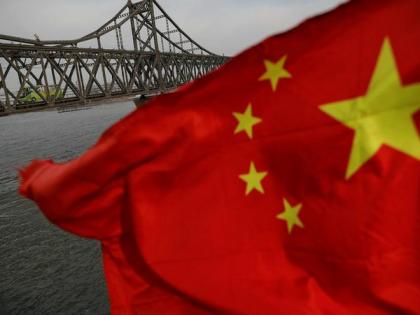China's anti-dumping probe into imported chemical escalates trade tensions
By ANI | Published: May 19, 2024 07:17 PM2024-05-19T19:17:56+5:302024-05-19T19:20:04+5:30
Beijing [China], May 19 : The anti-dumping investigation launched by China into imports of polyformaldehyde copolymer, an engineering chemical, ...

China's anti-dumping probe into imported chemical escalates trade tensions
Beijing [China], May 19 : The anti-dumping investigation launched by China into imports of polyformaldehyde copolymer, an engineering chemical, from the EU, US, Japan, and Taiwan has escalated trade tensions with the major trading partners.
European Union initiated a series of anti-subsidy and anti-dumping investigations into Chinese products, including one initiated recently, and there are impending tariffs from Washington on Chinese new energy products.
Concurrently, China's diplomatic relations with Japan have been strained over various issues, and the inauguration of a new administration in Taiwan is expected to further test Cross-Strait relations.
Polyformaldehyde copolymer, or POM copolymer, is a versatile thermoplastic used in automotive parts, electronic appliances, industrial machinery, sports and medical equipment, pipe fittings, and building materials. It can also substitute metals like copper, zinc, tin, and lead.
According to the Chinese Ministry of Commerce, the investigation, prompted by a joint application from six mainland Chinese producers submitted in April, should conclude within a year but could be extended by six months under special circumstances.
Recently, the European Union had initiated an investigation into tin-plated or coated flat-rolled iron or steel products imported from China as part of their ongoing efforts to safeguard domestic manufacturers.
Moreover, US President Joe Biden has imposed significant new tariffs on Chinese electric vehicles, advanced batteries, solar cells, steel, aluminum, and medical equipment stating that Chinese government subsidies give them an unfair advantage in international trade.
The White House said that the decision has come in response to China's 'unfair trade practices' and to counteract the resulting harms.
"China's unfair trade practices concerning technology transfer, intellectual property, and innovation are threatening American businesses and workers. China is also flooding global markets with artificially low-priced exports. In response to China's unfair trade practices and to counteract the resulting harms, today, President Biden is directing his Trade Representative to increase tariffs under Section 301 of the Trade Act of 1974 on USD 18 billion of imports from China to protect American workers and businesses," the White House statement read.
The statement on hiked tariffs on imports from China also noted that the Chinese government has used unfair and non-market practices for too long now.
"China's forced technology transfers and intellectual property theft have contributed to its control of 70, 80, and even 90 percent of global production for the critical inputs necessary for our technologies, infrastructure, energy, and health carecreating unacceptable risks to America's supply chains and economic security," the White House said.
"Furthermore, these same non-market policies and practices contribute to China's growing overcapacity and export surges that threaten to significantly harm American workers, businesses, and communities," it added.
The US and the European Union have often expressed their concern over "industrial overcapacity" in China that is impacting their domestic companies.
US Treasury Secretary Janet L Yellen met with the Economic Working Group (EWG) and Financial Working Group (FWG) between the US and China in April this year following her trip to Beijing and Guangzhou.
"The US delegation continued to express concerns about China's non-market practices and industrial overcapacity," the US Treasury Department had said after the meeting.
"Both sides agreed to further discuss these issues," according to a readout on the meeting.
Disclaimer: This post has been auto-published from an agency feed without any modifications to the text and has not been reviewed by an editor
Open in app